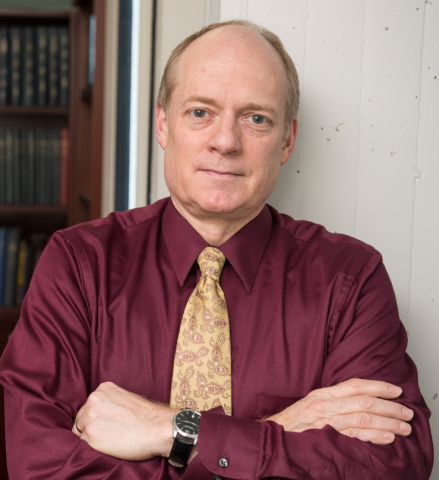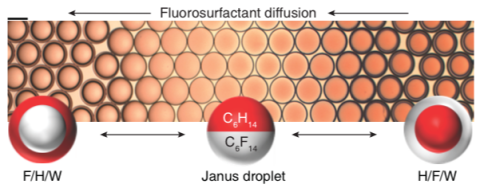event
STAMI Distinguished Lecture Series Professor Timothy M. Swager
Primary tabs
ABSTRACT
This lecture will focus on the design of systems wherein reconfiguration of complex liquid emulsions (droplets) can be triggered chemically or biochemically. The utility of these methods is to generate new transduction mechanisms by which chemical and biological sensors can be developed. Complex liquid droplets behave as optical lens systems and small changes in surface tensions can change focal lengths or cause systems to switch between optically transmissive or scattering states. Central to this scheme is that the fluids in the droplets have different densities and hence are aligned by the earth’s gravity. The induced optical changes can be triggered with chemical, photochemical, or biochemical stimuli and thereby create new generations of sensors. Demonstrations of these methods for the detection of enzyme concentrations and pathogens will be presented.
ABOUT THE SPEAKER
Timothy M. Swager is the John D. MacArthur Professor of Chemistry and the Director, Deshpande Center for Technological Innovation at the Massachusetts Institute of Technology. A native of Montana, he received a BS from Montana State University in 1983 and a Ph.D. from the California Institute of Technology in 1988. After a postdoctoral appointment at MIT he was on the chemistry faculty at the University of Pennsylvania 1990-1996 and returned to MIT in 1996 as a Professor of Chemistry and served as the Head of Chemistry from 2005-2010. He has published more than 450 peer-reviewed papers and more than 90 issued/pending patents. Swager’s honors include: Election to the National Academy of Sciences, an Honorary Doctorate from Montana State University, The Pauling Medal, The Lemelson-MIT Award for Invention and Innovation, Election to the American Academy of Arts and Sciences, The American Chemical Society Award for Creative Invention, The American Chemical Society Award in Polymer Chemistry, The Christopher Columbus Foundation Homeland Security Award, and The Carl S. Marvel Creative Polymer Chemistry Award (ACS).
Swager’s research interests are in design, synthesis, and study of organic-based electronic, sensory, high-strength and liquid crystalline materials. His liquid crystal designs demonstrated shape complementarity to generate specific interactions between molecules and includes fundamental mechanisms for increasing liquid crystal order by a new mechanism referred to as minimization of free volume. Swager’s research in electronic polymers has been mainly directed at the demonstration of new conceptual approaches to the construction of sensory materials. These methods are the basis of the FidoTM explosives detectors (FLIR Systems Inc), which have the highest sensitivity of any explosives sensor. Other areas actively investigated by the Swager group include radicals for dynamic nuclear polarization, applications of nano-carbon materials, organic photovoltaic materials, polymer actuators, and luminescent molecular probes for medical diagnostics. He is the cofounder of 3 companies and has served on a number of corporate and government boards.
Groups
Status
- Workflow status: Published
- Created by: Tim Parker
- Created: 02/19/2019
- Modified By: Sharon Lawrence
- Modified: 03/01/2019
Categories
User Data
Target Audience


